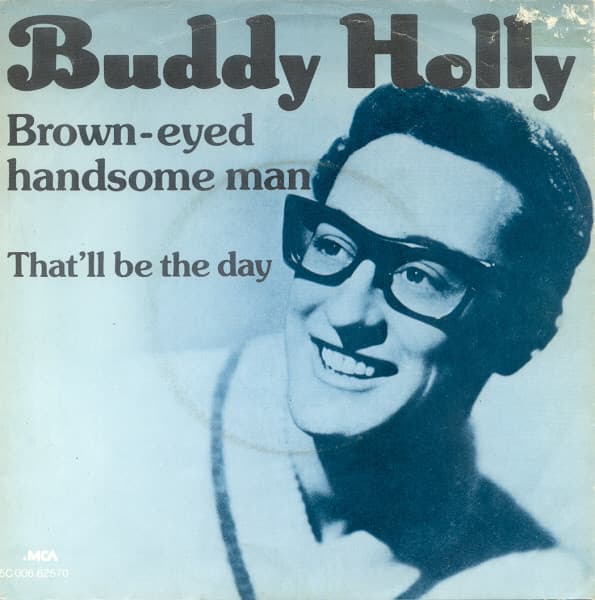
🎸 A Posthumous Tribute: The Enduring Charm of Buddy Holly’s Rendition
A Celebration of Unheralded Beauty and a Nod to Rock’s Foundation.
There are certain songs, friends, that carry the echoes of a bygone era, not just in their melody, but in the very circumstances of their release. Such is the case with Buddy Holly’s recording of “Brown Eyed Handsome Man,” a track that emerged long after the young legend was tragically taken from us. It’s a poignant piece of the Buddy Holly legacy, a testament to the treasure trove of music he left behind.
Charting the Late-Coming Legacy
Unlike some of his earlier, epoch-making singles, Buddy Holly’s rendition of “Brown Eyed Handsome Man” was not an immediate chart stormer when he was alive. In fact, this track, originally written and recorded by the great Chuck Berry, was eventually released posthumously on the compilation album “Reminiscing” in 1963, four years after the devastating plane crash that claimed Holly’s life. As a single, it did chart on the UK Official Charts, peaking at a respectable position, a sign of the enduring, almost sacred, devotion his fans held for his music, even years after the fact. The very act of this song charting was less about a current hit and more about a faithful community reaching out to embrace one last, familiar touch from an artist gone too soon. Every spin of that record was a collective sigh of nostalgia.
The Story and Meaning: Chuck Berry’s Vision Through Holly’s Voice
The story behind this particular recording is a beautiful intertwining of two rock and roll giants. “Brown Eyed Handsome Man” is fundamentally a Chuck Berry composition, first released in 1956. Berry originally penned the song, which uses vignettes—a courtroom drama, a police officer on the beat, a baseball game—to make a subtle, yet powerful, statement about race and identity in the mid-century American landscape. The repeated insistence on the “brown-eyed handsome man” can be viewed as a wry, knowing celebration of African-American identity and pride in a culture where such praise was often reserved for others.
Buddy Holly, a white Texan artist, covered this song, recording his version in 1956, around the time he was forming The Crickets. This choice wasn’t accidental. Holly was profoundly influenced by Black rhythm and blues artists like Chuck Berry and Little Richard. By recording “Brown Eyed Handsome Man,” Holly wasn’t just performing a popular tune; he was acknowledging, in his own quiet way, the genius of Berry and the deep, desegregating power of Rock and Roll. It’s a marvelous cultural cross-pollination. When we listen to Holly’s version, we hear the distinctive Buddy Holly sound—the earnest, hiccuping vocals, the signature guitar work—applied to Berry’s profound social observation. Holly stripped away some of the original’s overt blues grit, lending it a clean, rockabilly-pop sheen, which made its message accessible to an even wider, primarily white, audience. In a sense, Holly was an unwitting ambassador, ensuring Berry’s song became part of the broader Rock canon.
A Nod to the Pioneers
For those of us who remember the birth pangs of rock and roll, this record is a warm embrace. It reminds us of a time when the music itself was a radical, unifying force. To hear Holly sing “Brown Eyed Handsome Man” is to hear the future being forged—a future where the lines of country, blues, and R&B blurred into something utterly new. It is a snapshot of an artist, full of promise, acknowledging the foundation on which he stood. The sheer joy and easy confidence in Holly’s voice on this track make us mourn his loss all over again, while simultaneously celebrating the precious gifts he left behind. It’s a beautifully melancholic piece, a song of cultural respect, and a shining example of Buddy Holly’s enduring genius, found years later in a vault of forgotten tapes.